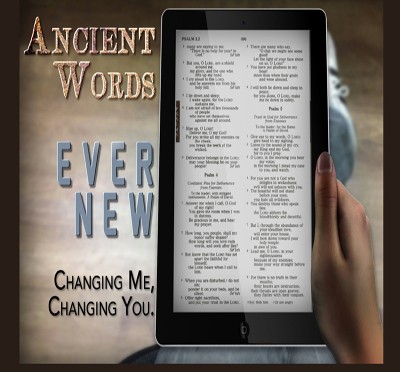Sermon Summary Notes
Last week we began a new five-part series, “Ancient Words, Ever New”. Our aim in this series is to investigate what the Bible claims for itself. The Bible is an ancient book, but what is its relevance to our lives today? Last week we learned that God has revealed himself to us through the written Word of God, the Bible, and through the living Word of God, the Lord Jesus Christ. God visited us and even became one of us so that he could communicate even better, and so that ultimately he could save us from our own self-destructiveness and sin. God inspired the Bible, and because God is perfect, the document he inspired is without errors.
The doctrine of the “inerrancy” of Scripture means that, (1) when all facts are known, (2) the Scriptures in their original autographs, (3) and properly interpreted, will be shown to be wholly true in everything that they affirm, (4) whether that has to do with doctrine or morality or with the social, physical, or life sciences. (1) “when all facts are known”: The Bible was written millennia ago, in a very different culture. Some of the statements of Scripture include cultural comments we don’t understand. Archaeology is filling in some of the gaps, but there’s still some stuff about ancient cultures that we don’t know. But note—those are problems with our understanding, not with the Bible’s reporting. (2) Inerrancy relates to “the Scriptures in their original autographs”. For centuries, every book had to be laboriously copied by hand. Then copies would be made of copies. Eventually, some of the manuscripts have a slight variant reading. That variation was passed down through the generations of hand copying. Matthew 18:22 is one such example (some manuscripts read “seventy seven times”, others “seventy times seven”). Which variation is right? In the end, it doesn’t matter, because Jesus’ point is that we’re not supposed to count, just keep on forgiving. Is it a meaningless gimmick to say that only the autographs were inerrant? After all, we don’t have them any more—we just have copies? Not at all. Suppose that you’re deathly ill; your disease is 100% fatal—unless you take this serum. But before you take the medicine, a fly lands in it. Now the serum is tainted a bit. Would you be willing to take the medicine? Of course—it is 99.9% identical to the pure, uncorrupted serum. It’s better than nothing—much better! That’s how it is with the Scriptures. (3) Scripture must be properly interpreted. Don’t you hate it when people put words in your mouth?! You’re willing to answer for statements you truly made, but when people hold you accountable for
things you never said, well, that’s another matter. When we misinterpret Scripture, we’re “putting words in God’s mouth”. John 21:22-23 is an example of that. God feels no obligation to fulfill a promise he never made! People often ask, “Do you take the Bible literally?”. My answer? “I take the literal parts literally, the figurative parts figuratively—and all of it truly!” (John 8:24 cf. John 15:5a). Although the Bible is not primarily a science textbook, because it’s the inerrant Word of God, we believe that when it does speak about scientific things, it is not in error. Of course, it often uses phenomenological rather than technical language (Psalm 104:22a; the sun “rises”. But we speak that way too). Let’s not hold the Bible to a standard that we don’t hold ourselves to! The Word of God is “perfect…sure…right…pure…clean…and true ”. It is fail-proof, and therefore must be supreme in our lives. If we discard inerrancy, then it’s authority over our lives will be gutted. The Scriptures are to be believed, obeyed, and loved. The only alternative to affirming the infallibility and authority of Scripture is to enthrone our darkened human reason in it’s place. We only have two options: true theology or man-made mythology.


